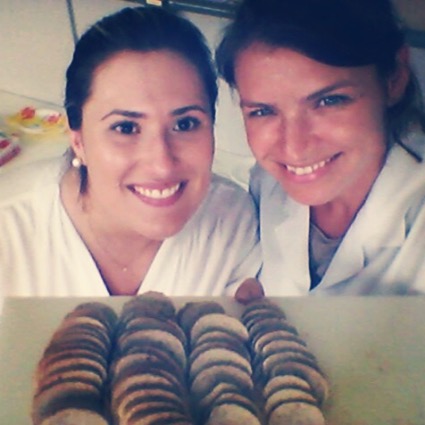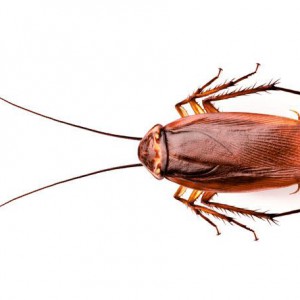 Interview with students Andressa Jantzen and Lauren Menegon (photo) and Prof. Myriam Salas Mellado, Food Science and Technology Laboratory of Federal University of Rio Grande (Brazil).
Interview with students Andressa Jantzen and Lauren Menegon (photo) and Prof. Myriam Salas Mellado, Food Science and Technology Laboratory of Federal University of Rio Grande (Brazil).
You’ve recently concluded a study on producing flour from edible insects. How did you get interested in this topic?
While trying to innovate the food industry in Brazil our journey brought us to the idea of using edible insects for human consumption. Due to our extensive research we concluded that insects offer specific benefits because they are exceptionally efficient in converting what they eat into materials that can be consumed by humans, the actual food conversion efficiency of insects may be 20 times that of cattle. By the fact insects have rich sources of protein, they can enrich the human diet, especially for people suffering from malnutrition, and their consumption can help reduce the negative environmental footprint of livestock, requires far less space and generates less pollution, so these factors were enough to convince us to start the research.
What kind of insect did you use and why?
We chose to use the cockroach (Nauphoeta cinérea), due to its high protein value, which is almost 65%. It contains 8 of 9 essential amino acids existing, and high quality of fatty acids such as omega 3 and omega 9.
What are the results of the study?
We conclude that the bread that was added of 10% of the flour of cockroach cinérea in its formulation presented a protein increase of 49.16% in relation to the bread that was prepared only with white flour. The changes in the technological quality were almost imperceptible and this was proven when doing the sensorial analysis where we obtained results superior to 75% in all the parameters analyzed with respect to the acceptance rate.
Did you receive private/public/institutional funding?
The research was developed in the laboratory of Food Technology of the University. We receive only the institutional support.
How is the consumers’ acceptance of edible insects products in Brazil?
Unfortunately there is still no type of food products made with insects here in Brazil. Our research is unprecedented in this area of knowledge and we intend to open the doors to this market. The National Agency of Sanitary Surveillance (ANVISA), which is the agency responsible for the liberation of new products in Brazil, has not yet approved the use of insects for human consumption. We are submitting the request for insects to be consumed by humans in order to market our products.
Do you think that human entomophagy could help us to better our food production system and to protect the environment?
We believe so. In the future the greatest challenge for mankind will be to produce food in increasing quantities, therefore, insects can become an important source of food. FAO lists the benefits of large-scale insect production: 2 kg of feed is needed to produce 1 kg of insects, while cattle require 8 kg of feed to produce 1 kg of meat. Their production is extremely ecological because they use much less water, produce less greenhouse gases than cattle and at the end of the process, we manage to use the insect in its entirety, which is not the case with livestock since many parts of the cattle are not used for such as feet, teeth, bones and skin, where they are commonly used in the manufacture of animal feed.





